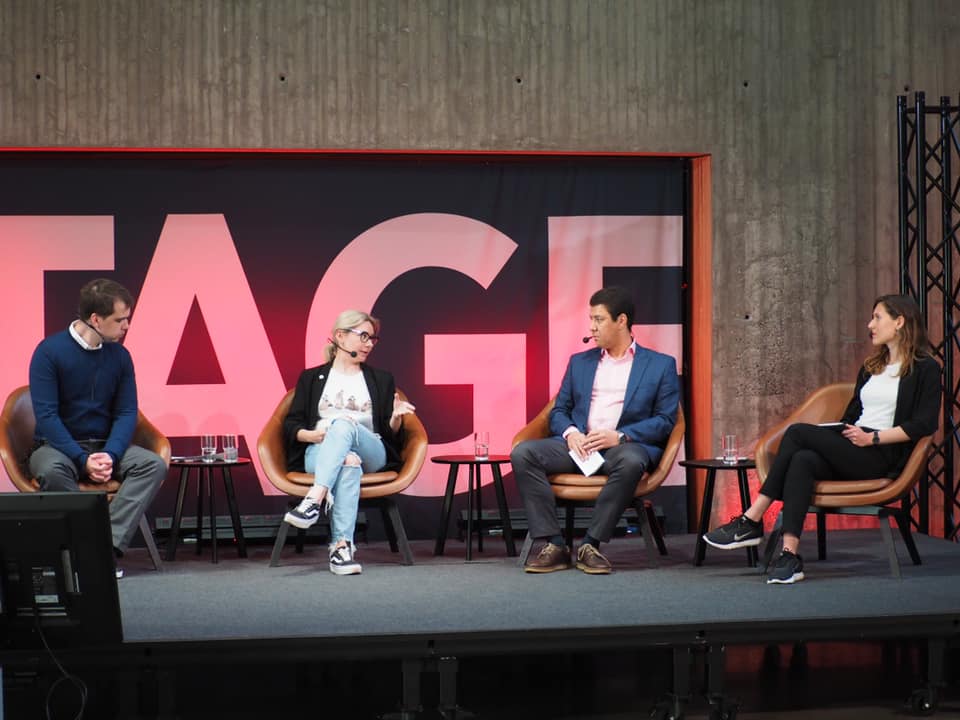Yesterday Aleksanteri Institute organised a discussion panel at Tiedekulma on COVID-19 in Russia and its effects on politics, Central Asian migrants, and prisons. The event was streamed online and consisted of three presentations by postdoctoral researchers at the Aleksanteri Institute – Margarita Zavadskaya, Sherzod Eraliev (“Covid-19 pandemic on Central Asian labour migrants in Russia”), and Olga Zeveleva (” Prisons and punishment in Russia during the COVID-19 pandemic”) and was chaired by Mikhail Nakonechnyi, also a postdoctoral researcher at the Aleksanteri Institute. After the discussion, the participants answered the questions that were sent by the audience online.

ElMaRB project leader, Margarita Zavadskaya gave a talk titled “Political Consequences of the COVID-19 in Russia: Another Blame Game? “. The talk in many ways reflected what Margarita was exploring within the “Politics and Pandemics” special series that we started at the beginning of April in our blog. Margarita discussed how Russia is dealing with the pandemic, and what are the economic and political consequences of it.
Dr. Zavadskaya pointed out some interesting features of the political support dynamics in Russia. For instance, from social studies, we know that events like natural disasters, external threats usually provide rallying around leader effect. However, we do not observe it in Russia. Even state-sponsored pollsters report stable figures around 67% (i.e. no rise). According to the independent pollster Levada Center, political support for V. Putin reached its historical low of 59% in May. Moreover, before April, Levada registered a rise in support for regional governors.
Second, there is a rise of mass concerns with the economic situation, purchasing capacity, and employment prospects, especially among the vulnerable groups of the population, small business, and medical workers. The Russian economy has been experiencing problems before the pandemic – it was hit hard by the drop of oil prices on March 8th and earlier decrease in trade with China. The pandemic and subsequent lockdown aka ‘non-working days’ or even sometimes referred to as ‘holidays’ lead to an immediate rise in official unemployment, bankruptcies, and an overall slowdown of economic activities. As we know, people tend to “punish” their governments for a deteriorating economy and hold them accountable for the economic grievances. Thus, in Russia, we can observe two warring tendencies – the expected rallying effect and blaming the authorities for the declining economy.
What can be expected from all this? The experts generally agree that the implemented by the government supportive measures fell short of the Russians’ expectations. The official statistics number may show that the support of the government and the president is still relatively high, but actually, even the so-called pro-Putin loyal majority is unsatisfied with the current situation and the social contract has eroded. At the same time, there are no channels for Russians to express their discontent – while people in electoral democracies can just throw the rascals out with voting, Russian elections do not allow voters to punish the executive for the ‘bad governance’. Protest – another form of expressing political discontent – also seems costly under repressive regimes due to various restrictions on the public gatherings (especially during the pandemic), even solitary pickets. Besides that, people don’t tend to protest when the economic situation is hard. Therefore, all the grievances will be just accumulating for a while.
To finalise, the COVID-19 helped the regime to experiment with a new toolkit of manipulations and repressive measures – new restrictions on gatherings, new forms of voting. There are grounds to believe that the vote on constitutional amendments is better to take place as soon as possible because political support is not expected to remain high. On the other hand, this time the regime attacked its loyal voters. Loyal majority kept voting for the regime, but when the state was most needed, it backed down from its ‘duties’. Ironically, excessive regulatory intervention of the state in business and non-commercial sectors turned out to be a laisser-faire strategy when it was most needed. Thus, Russia will remain about the same, but poorer and more repressive.
The full recording of the panel discussion is available below:
